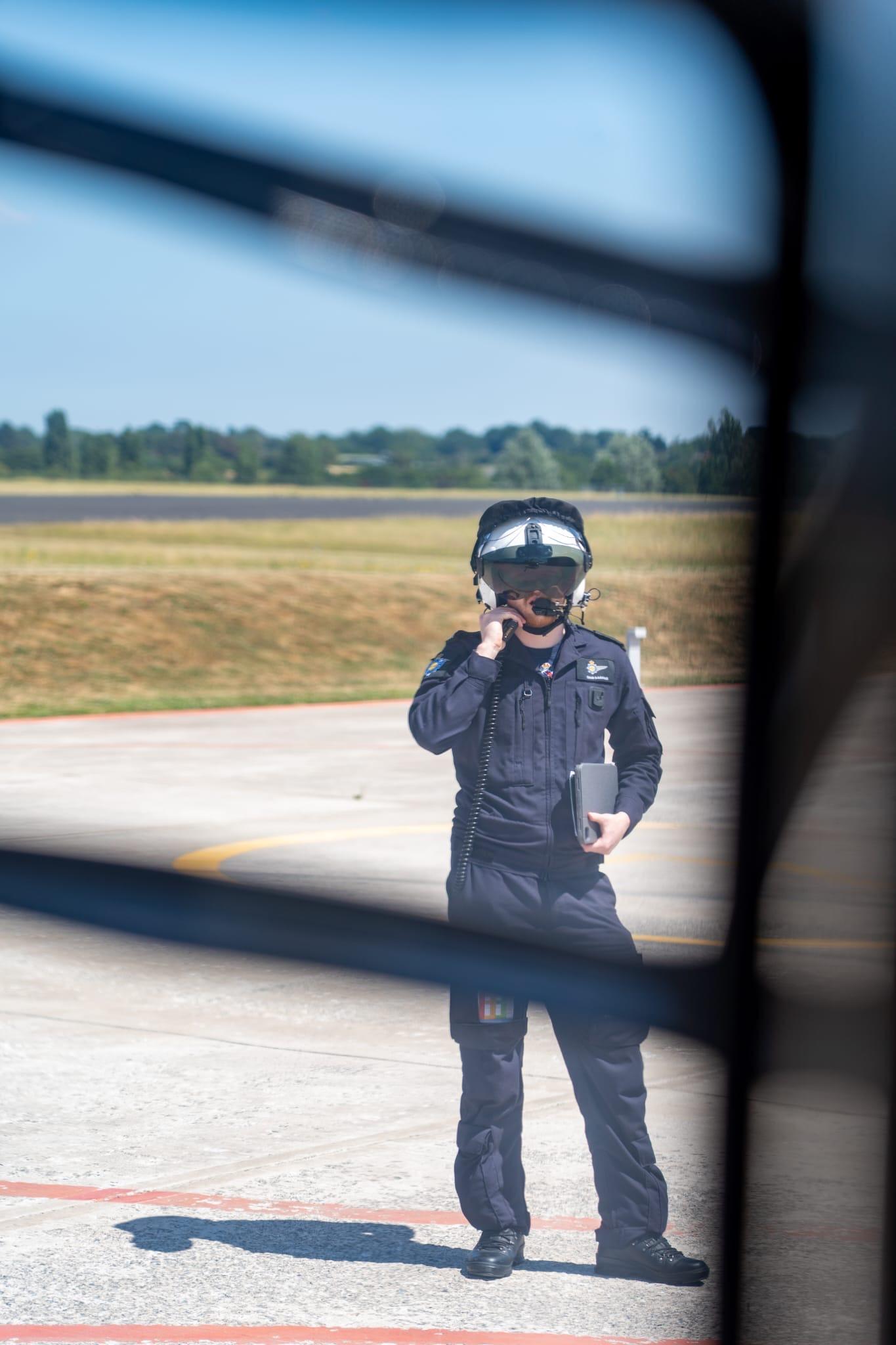GE Aviation selected by NASA for hybrid electric tech demonstrator

Image courtesy GE Aviation
Plans are to conduct ground and flight tests of a megawatt (MW) class hybrid electric propulsion system by the mid-2020s.
The hybrid electric technology will be flight tested with a modified Saab 340B testbed and GE’s CT7-9B turboshaft engines.
As part of NASA’s Electric Powertrain Flight Demonstration (EPFD) project, a total $260 million will be invested by NASA, GE Aviation and partners over five years to accelerate the introduction of hybrid electric flight technologies for commercial aviation. After years of maturing individual components of a hybrid electric system—motors, generators and power converters—GE will systematically mature an integrated hybrid electric powertrain to demonstrate flight readiness for single-aisle aircraft.
“We are grateful for the opportunity to partner with NASA to take hybrid electric aircraft engines out of our test labs and into the sky, bringing more sustainable technology solutions to commercial aviation as quickly as possible,” said Mohamed Ali, vice president of engineering for GE Aviation.
Hybrid electric propulsion technologies that save fuel and optimise engine performance are key to GE’s commitment to help develop a more sustainable future of flight. GE Aviation’s ambition is for its products to have net zero emissions by 2050 and hybrid electric engines will help achieve this target. Hybrid electric technologies are highly compatible with Sustainable Aviation Fuel (SAF) and hydrogen, as well as advanced engine architectures such as the open fan and new advanced engine core designs.
“By taking these concepts to flight, NASA and its partners will accelerate the transition of EAP [Electrified Aircraft Propulsion] technologies into commercial products and be a catalyst for economic growth,” said Robert Pearce, associate administrator for the Aeronautics Research Mission Directorate at NASA Headquarters in Washington. “We expect to realise significant improvements in the economic and environmental performance of subsonic transports through incorporation of these novel alternative propulsion and energy technologies into the fleet.”
In partnership with NASA on the EPFD programme, GE will also provide guidance and data to establish standards and certification and regulatory requirements for hybrid electric engines.
As a result of the NASA funding award, GE Aviation expects to add more than 25 new hybrid electric engineering jobs.
The EPFD contract builds on GE Aviation’s extensive experience with hybrid electric systems and electrical power generation, as well as extensive research and flight component development capabilities at GE Research and GE Power. Key GE milestones include:
- 2009: Participating in the Boeing Subsonic Ultra Green Aircraft Research (SUGAR) study. The NASA request was to identify aircraft technologies that would lower emissions and reduce fuel consumption for future aircraft flying after 2030. The team evaluated hybrid electric propulsion systems.
- 2013: Opening the EPISCenter (Electrical Power Integrated Systems Center) in Dayton, Ohio, a dedicated facility for developing and testing electric power components and systems for aircraft.
- 2015: Successfully extracting one MW of electrical power with an F110 engine in a ground-level test cell, followed by a 2016 demonstration of MW power extraction at flight-representative altitude conditions.
- 2016: Demonstrating an electric machine consisting of a MW class motor/generator, electrically powering an 11-foot diameter propeller on a test stand.
- 2019: Demonstrating a MW class motor/generator at altitude conditions up to 36,000 feet at NASA’s Electric Aircraft Testbed (NEAT) facility in northern Ohio. GE believes this to be the world’s first power dense, MW and kilovolt class electric machine tested at flight-representative conditions.
GE Aviation is one of the largest employers of aviation systems engineers in the UK and over 60% of its business focuses on supplying defence and military customers.













